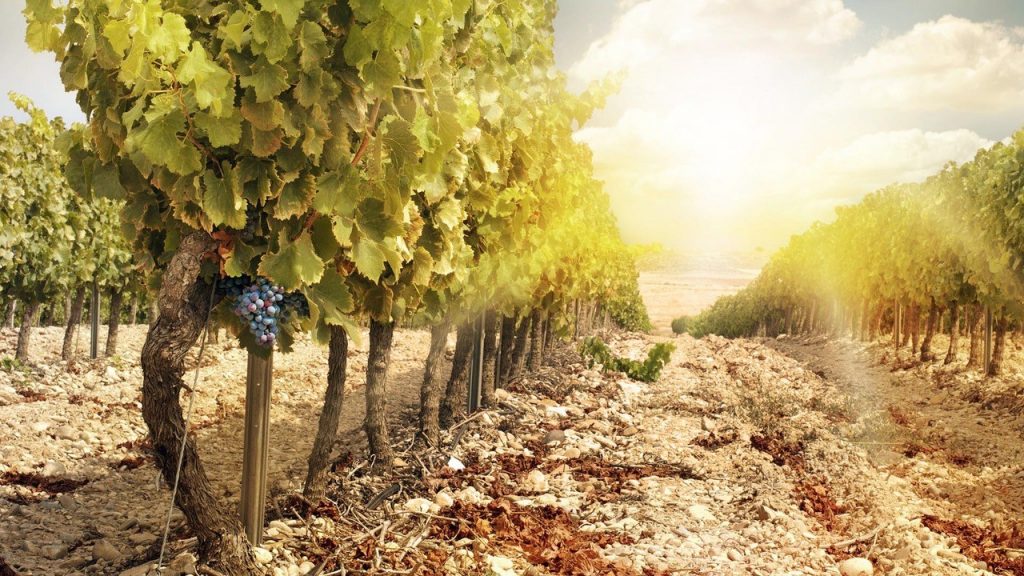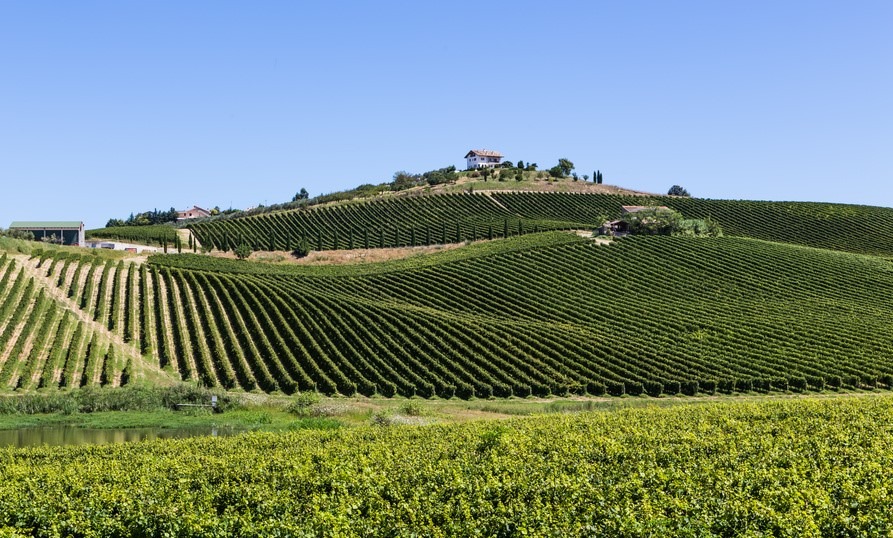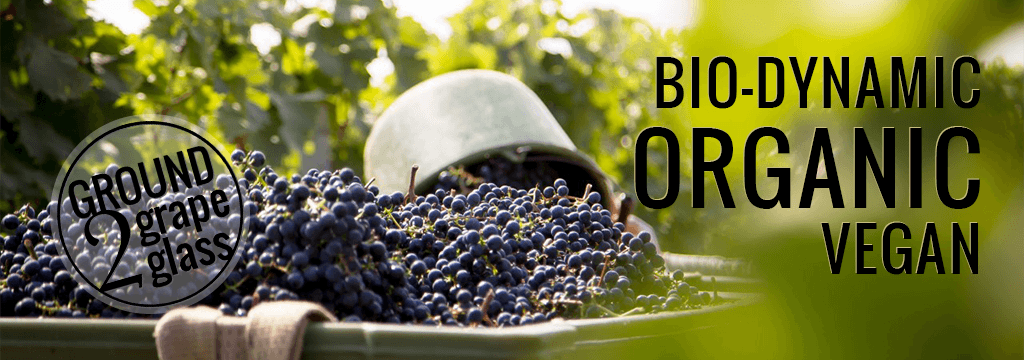Organic / Bio-Dynamic / Vegan
- November 11, 2019
- 10:13 am
– What Does it All Mean?
Admirers of fine wines – along with consumers in general – are becoming more and more discerning when it comes to the food and drink we choose. This is a very good thing; by educating ourselves about nutrition and the environmental impact of food production, we can all make informed choices which will benefit ourselves, our loved ones and our planet.
Increased awareness of such matters has given rise to new classifications of food products based on what they contain and how they are produced. These days, it seems like almost every food product in a supermarket is offered alongside an ‘Organic’ or ‘Vegan’ alternative, and these terms are largely well understood by the buying public. But it gets a little more complicated when these classifications are applied to wine.
Wine is made from grapes, which are not an animal product, so wine is vegan, right? And surely the wine is organic so long as the grapes aren’t treated with chemicals? In reality, things aren’t quite that simple. And when you add into the mix labels like ‘Natural wine’ and ‘Biodynamic wine’, things can become more than a little confused.
But fear not! Below you will find a straight-talking comparison between these four categories, courtesy of the Travelling Wine Merchant. Our aim is to provide all the information you need to choose wines which you will find palatable both nutritionally and ethically.
Vegan Wine
Veganism – the abstention from all animal products, particularly in a dietary context – is more popular now than ever, with many large food retailers stocking ranges of vegan-friendly products. Some people pursue this lifestyle for health reasons, citing various purported physiological benefits of a plant based diet. For others, it is moralistic reasons, such as the ethical treatment of animals and environmental sustainability which attract them to veganism.
Since wine is made from grapes and yeast, few vegans have an issue with the drink itself – it is the way many wines are processed and packaged which some may find unacceptable. Fine sediment from the wine making process is removed from the finished product by a process known as ‘fining’. Such small particles are harmless, but they cannot be removed by filtration and give the wine a cloudy appearance. Traditional fining agents include egg white, milk protein, and in some cases animal protein, all substances which vegans would find objectionable. These agents are later removed and are therefore not listed among the ingredients on the side of the bottle, however tiny amounts are likely still present in the finished wine. Add to this the beeswax and milk-derived glue which may be used in the packaging, and it is easy to see why a ‘Vegan Wine’ label is necessary.
It should be noted that, at the time of writing, there are no legally binding standards as to what can or cannot be marketed as a vegan product. If you are interested in vegan wine, the best policy is to find a retailer who can vouch for the history of their products. At Travelling Wine Merchant, we are happy to guide our customers through the choices in order to find fine wines which will satisfy both their tastes and their principles.

Organic Wine
Most of us are familiar with the concept of organic produce and the benefits which are commonly associated with it. Few would deny that restricting the unnatural chemicals we put into our bodies, such as fertilizers and pesticides, is a worthwhile goal. And if we bought a bunch of organic grapes from a greengrocer, we would expect them to have been grown using only natural materials.
The complication arises, however, when those grapes are crushed and fermented to produce wine. During the fermentation process, sulphur dioxide forms within the wine as a by-product. This sulphur dioxide acts as a preservative, giving the finished wine a longer shelf life. In fact, in many markets it has become common practice for producers to add sulphur dioxide – sometimes in large amounts – to enhance this preservative effect. Once again, concerns over the addition of unnatural materials to the beverage must be addressed.
For buyers who insist that their product be free of such additives, official classifications have been introduced. In the UK and Europe, ‘Organic wine’ is legally defined as wine produced from grapes which have been farmed in such a way as to qualify them as organic produce. These wines may contain a limited amount of added sulphur dioxide. This is different to in the US, where to be certified as organic wine must also be free of added sulphites.
As a result, UK and European drinkers who are concerned with the issue of added sulphites would be wise to buy only from knowledgeable merchants who can advise you on the contents and production of each variety. It may also help to familiarize yourself with other categories, such as ‘Natural Wine’ and ‘Biodynamic Wine’.

Featured award-winning organic wines from the Travelling Wine Merchant include:
- Jasci & Marchesani
Drawing on the fertility and richness of the ancient soils around Vasto, this product of the first organic vineyard in EU continues a great tradition in this stunning region of Italy.
Winery of the year 2014. - Savian
Since 1925 the Savian winery have nurtured sustainability and respect for the land, embracing new technologies without impacting their organic credentials.
Multiple medal winner at international organic wine awards 2019.
We have enjoyed a 10 year association with both these leading organic wine producers.
Natural Wine
Natural wine is an ideal rather than a classification, and therefore is difficult to define in black-and-white terms. If veganism was conceived as ‘the beginning and end of vegetarianism’, then natural winemaking could be similarly thought of in comparison to organic wine. Natural winemakers use organic ingredients, and turn them into wine using the bare minimum of processing.
Fans of natural wine will tell you that this is the beverage as it is naturally meant to be, still containing the microbial life of the vineyard which produced it. In real terms, for producers to have their hands voluntarily tied in terms of how they can influence the process represents a significant risk from a commercial point of view. Therefore, drinkers must realise that a natural wine is more an experience than a product, like trekking in the mountains or crossing the wild savannah; and you have chosen to pursue that experience in all its raw, unfiltered reality, for better or worse.
Biodynamic Wine
Biodynamics is a concept which takes the ideas of organic farming and extends them across every aspect of agriculture. By treating soil, crops and animals as elements of a single system, biodynamic farmers seek to produce food and other products by completely natural methods. Chemical fertilizers, pesticides and other treatments are shunned in favour of whatever natural, sustainable materials which may be at hand.
Biodynamic wine is, therefore, wine which has been produced according to these principles, as certified by an international body. Besides the ecological credentials of biodynamic wine, varieties produced in this way are said to be superior to traditionally produced alternatives, in many subtle but key ways. Whether you find the theories of alternative farming methods compelling or not, it is true that a number of very respected producers are now adopting these methods, so be sure to check out the range of biodynamic wines available from the Travelling Wine Merchant today.



